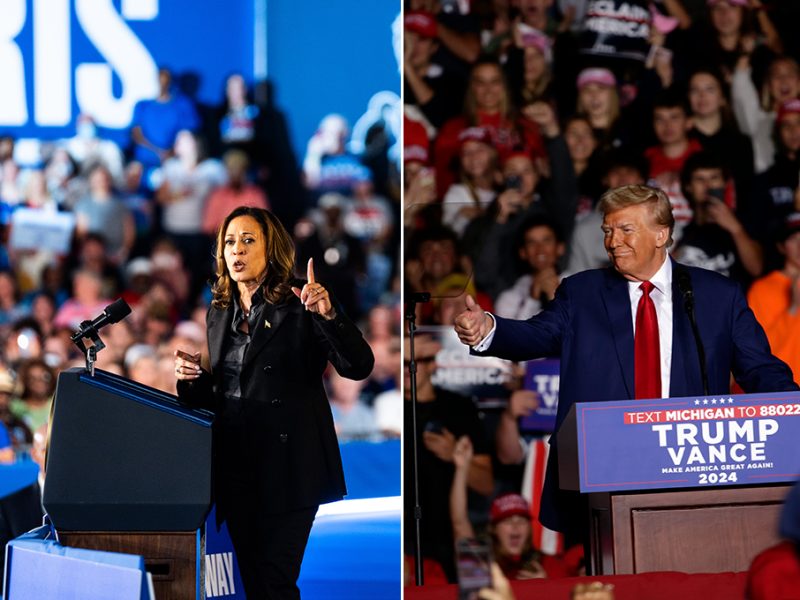In the midst of a closely contested race, Vice President Kamala Harris and former President Donald Trump continue to forge divergent paths that reflect contrasting approaches to leadership and policymaking. As the 2024 election looms large on the horizon, the differences between the two potential candidates are becoming increasingly pronounced on key issues such as healthcare, climate change, and foreign policy.
Healthcare stands out as a significant point of contention between Harris and Trump. Vice President Harris has advocated for strengthening the Affordable Care Act and expanding access to healthcare for all Americans. She has consistently voiced support for initiatives aimed at addressing healthcare disparities, such as improving maternal health outcomes for women of color. In contrast, former President Trump has favored a more market-driven approach to healthcare, advocating for the repeal of the Affordable Care Act and promoting a system that offers more choices to consumers. The sharp contrast in their healthcare platforms underscores the ideological divide between the two candidates.
On the issue of climate change, Vice President Harris has positioned herself as a champion of environmental protection and sustainability. She has emphasized the urgency of addressing climate change through investments in renewable energy, clean transportation, and conservation efforts. Harris has also been an outspoken proponent of rejoining the Paris Agreement and collaborating with other nations to combat climate change on a global scale. Former President Trump, on the other hand, has been a vocal skeptic of climate science and has rolled back environmental protections put in place by the Obama administration. Trump’s America First approach prioritizes economic growth over environmental concerns, setting him apart from Harris on this critical issue.
In terms of foreign policy, Harris and Trump offer contrasting visions for America’s role on the world stage. Vice President Harris has emphasized the importance of diplomacy and multilateral engagement in addressing global challenges. She has called for reinvigorating alliances with traditional partners and promoting a values-based foreign policy that advances human rights and democracy. In stark contrast, former President Trump adopted a more transactional approach to foreign policy, prioritizing America’s economic interests and pushing for greater burden-sharing among allies. Trump’s America First foreign policy was characterized by a unilateralist stance that strained relationships with key allies and challenged the existing global order.
As the race between Harris and Trump remains deadlocked, their divergent paths offer voters a stark choice between competing visions for the future of the country. The outcome of the 2024 election will not only shape domestic policies but also have far-reaching implications for America’s standing in the world. With healthcare, climate change, and foreign policy emerging as key battlegrounds, voters will have to weigh the contrasting approaches of Harris and Trump and decide which path they believe is best suited to lead the nation forward.

